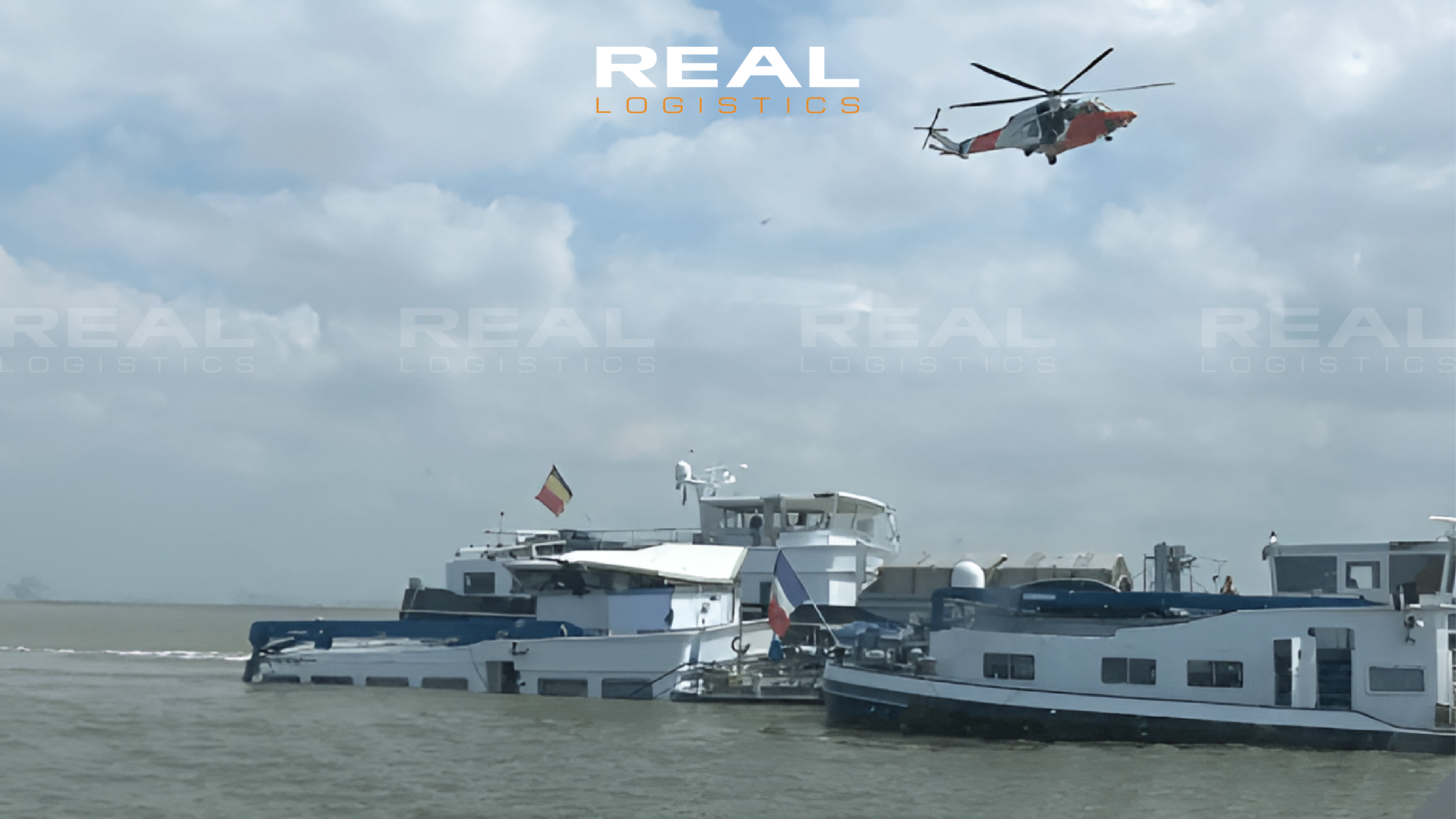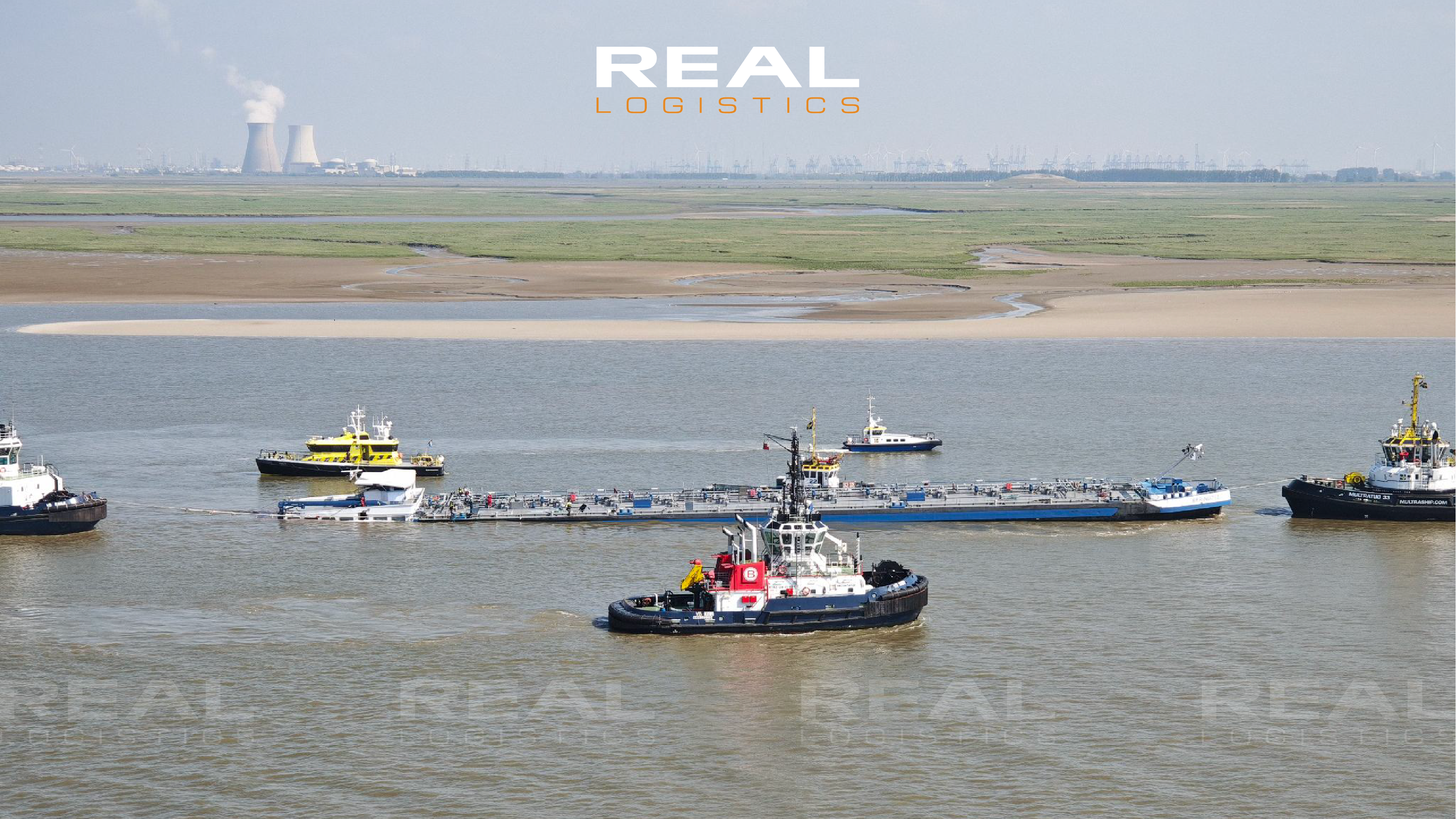CMA CGM Container Ship Collides with Dutch Fuel Barge on Waterway
In the complex and dynamic maritime industry, ensuring safety is always the top priority. Every maritime incident, whether minor or major, offers invaluable lessons, prompting the entire industry to re-evaluate its procedures and standards. Recently, a collision on a crucial European waterway has drawn significant attention from the international maritime community.
1. Incident Details: LNG Container Ship Collides with Barge on Scheldt River
Around 14:15 on May 30, 2025, a collision occurred on the Scheldt River, Netherlands, near the Marlemon anchorage – a busy waterway situated between the ports of Antwerp (Belgium) and Vlissingen (Netherlands). The incident involved two vessels:
- Container Feeder Vessel Containerships Nord: A container ship with a deadweight of 20,200 DWT and a capacity of 1,400 TEU, operated by the CMA CGM group. Notably, this is the first LNG (Liquefied Natural Gas)-powered container ship in the group's fleet.
- Inland Fuel Barge Beringzee: An 82-meter long barge registered in the Netherlands.
According to initial reports, the barge Beringzee was traveling from Antwerp to Vlissingen when it was overtaken by the Containerships Nord. During this maneuver, the two vessels collided. The Beringzee barge sustained significant damage, leading to water ingress and fuel leakage. Two individuals on the barge, including the captain and a crew member, fell into the water and were fortunately rescued promptly, although one person was seriously injured and the captain also sustained injuries during the rescue.

2. Consequences and Initial Response
Following the collision, the Beringzee barge was stabilized by two assisting vessels to prevent it from fully sinking. A minor oil sheen was detected on the Scheldt River, and oil booms were quickly deployed to contain the situation and mitigate environmental pollution.
As for the container ship, Containerships Nord sustained only minor damage. However, the vessel was instructed to proceed to an anchorage area for thorough inspection by the authorities. AIS (Automatic Identification System) signals later indicated that the vessel resumed operations.
Currently, Dutch and Belgian authorities are actively investigating to determine the exact cause of the collision.

3. Important Lessons for Maritime Safety and LNG Technology
The incident on the Scheldt River serves as a strong reminder of the inherent risks in maritime operations, especially on busy and complex waterways. This event is particularly notable as it involved an LNG (Liquefied Natural Gas)-powered container ship.
The use of LNG in shipping is increasingly prevalent as a solution to reduce emissions and move towards greener transport. However, every new technology demands stringent operational and safety procedures to ensure seamless integration and safe operation within the traditional maritime environment.
This incident raises several critical questions regarding:
- Collision avoidance rules and maritime responsibility on high-traffic waterways.
- Emergency response protocols for incidents involving alternative fuel vessels like LNG, especially concerning fuel leaks or spills.
- Training and competency of crew members in operating new vessel types and handling emergency situations.
The official investigation results from the authorities will provide deeper analyses and specific lessons for the entire industry to learn from, aiming to improve safety standards and risk management in the future.
Maritime safety is a shared responsibility of all stakeholders in the supply chain. Continuous learning and process improvement are key factors in ensuring that maritime operations remain efficient, sustainable, and safe.
Real Logistics remains committed to staying informed about such critical industry developments to continuously enhance our service quality and ensure the reliability of your supply chain.
—————————————
Real Logistics Co.,Ltd
👉 Facebook: Real Logistics Co.,Ltd
☎️ Hotline: 028.3636.3888 | 0936.386.352
📩 Email: info@reallogistics.vn | han@reallogistics.vn
🏡 Address: 39 - 41 B4, An Loi Dong, Thu Duc, HCM City
51 Quan Nhan, Nhan Chinh, Thanh Xuan, Ha Noi City

